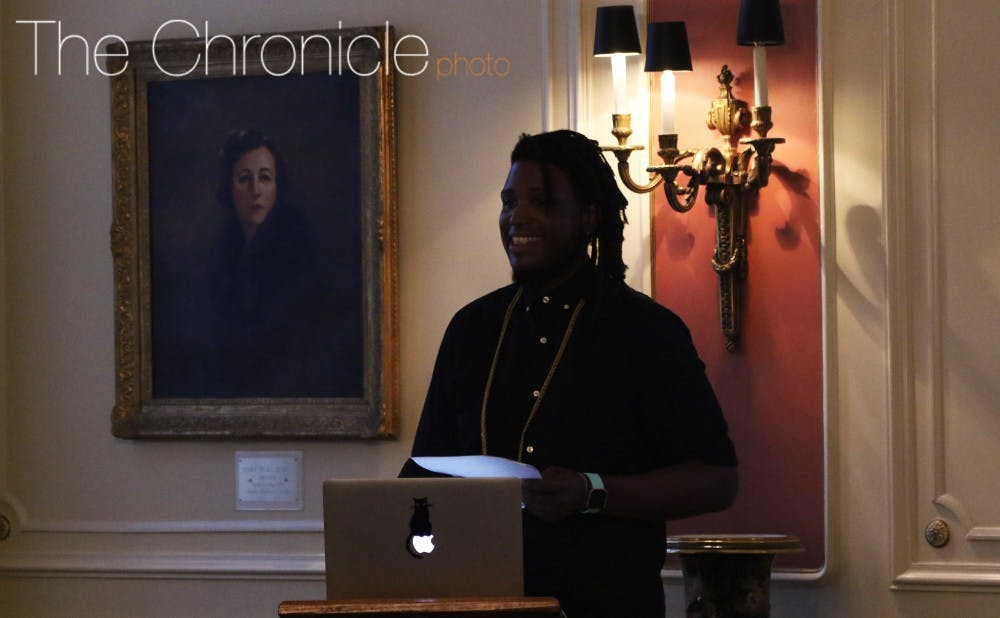When many people hear the word “professor,” they think of a well-paid, esteemed faculty member enjoying the benefits of tenure. But this description applies to fewer faculty members than most would believe, said a University of California at Santa Cruz professor Tuesday evening.
Nick Mitchell, an assistant professor of feminist studies at UC Santa Cruz, discussed the exploitation of adjunct professors at a talk in the East Duke Parlors. He highlighted the challenges many adjunct faculty have faced in the context of developing African American studies and women's studies departments during the past 40 years.
“Anywhere between two-thirds and three-quarters of all university courses are taught by adjunct professors,” Mitchell said. “The great majority of these adjuncts are paid poverty-level wages.”
Mitchell said these numbers likely understate the number of courses taught by adjunct staff. Many courses have instructors—including graduate and postdoctoral students—who are similarly underpaid, he explained.
“The new adjunct majority is often excluded from departmental decision-making protocols that have a direct bearing on their positions,” Mitchell said.
Mitchell described the historic role of adjunct professors and how recent faculty trends differ from those of the 1970s, a period he called a golden era of higher education. He said the title “adjunct professor” used to carry more prestige. But that changed after the creation of black studies and women’s studies departments in the late 1960s and 1970s.
When these departments were first created, he explained, universities were reluctant to hire tenured faculty to staff the new disciplines. Therefore, they turned to adjuncts—and students in some cases—who could teach the subject matter but would not receive a tenure-track position.
“Our best statistics from the mid-1970s indicate that just 40 years ago, the numbers [of adjuncts to full professors] were reversed," Mitchell said. "I think that attending to the specific histories of black studies and women’s studies have a lot to give us in terms of understanding what the foundations of universities are."
Mitchell extended his argument about recent adjunct faculty trends to other areas of university and student life by highlighting the presence of low-wage or no-wage workers in college athletics, work-study programs and unpaid internships.
The relationship between the NCAA—which garnered nearly $1 billion in 2014—and its student-athletes is unbalanced, Mitchell argued. Similarly, he added that the need for college students to gain experience through unpaid internships allows for “a constant stream of unpaid labor in the form of for-credit internships.”
Mitchell said that the unionization of graduate students, postdoctoral students and adjunct professors could be a potential solution to challenges faced by underpaid employees. And adjunct faculty and graduate students at several schools across the country have already taken that route.
Last year, the University's contingent faculty voted for representation in a union election. Adjunct faculty members have since been negotiating their demands with administration.
Duke's graduate students also recently attempted to unionize, but withdrew their petition after an inconclusive outcome.
Mitchell concluded the talk by bringing up the issue of free public university education, an issue that gained increased exposure from Sen. Bernie Sanders during the Democratic primaries.
“This is one of the few electoral reforms from the Sanders campaign that I think might have leverage, and I think it’s worth thinking more carefully about,” Mitchell said.
Get The Chronicle straight to your inbox
Signup for our weekly newsletter. Cancel at any time.

